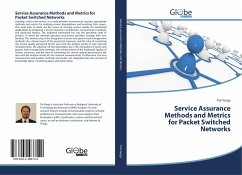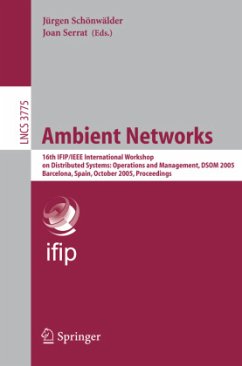
Quality of Service Routing in Wireless Ad Hoc Networks
QoS in Wireless Communications
Versandkostenfrei!
Versandfertig in 6-10 Tagen
59,99 €
inkl. MwSt.

PAYBACK Punkte
30 °P sammeln!
In wireless ad hoc networks, communication links are subject to a high error rate. This is due to several factors including ambient electromagnetic noise, obstacles in the propagation environment, and interference. It is known that successfully transmitting data packets over a poor quality link may require several retransmissions, which leads to increased delays, jitter and network load, and decreased useful throughput. In this context, routing plays a strategic role in increasing transmission performance. Several studies propose, through a cross-layer approach, to take into account the reliab...
In wireless ad hoc networks, communication links are subject to a high error rate. This is due to several factors including ambient electromagnetic noise, obstacles in the propagation environment, and interference. It is known that successfully transmitting data packets over a poor quality link may require several retransmissions, which leads to increased delays, jitter and network load, and decreased useful throughput. In this context, routing plays a strategic role in increasing transmission performance. Several studies propose, through a cross-layer approach, to take into account the reliability of links in the choice of routes. This is done through the construction of metrics. In this paper, we focus on bit error rate (at the physical layer) and number of retransmissions (at the MAC layer). Then, in order to exploit these metrics for route computation, an adaptation of the algorithms underlying the routing protocols must be performed. Performance tests show significant improvements of standard protocols.












